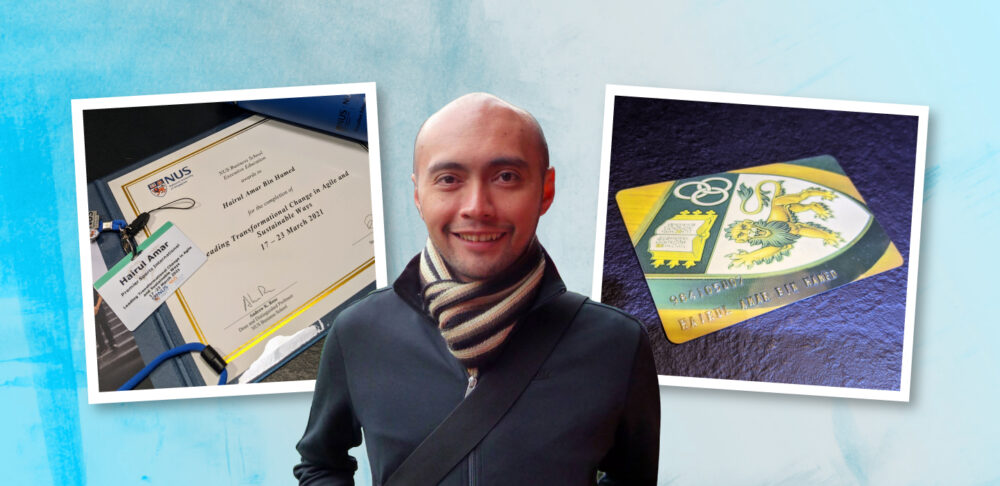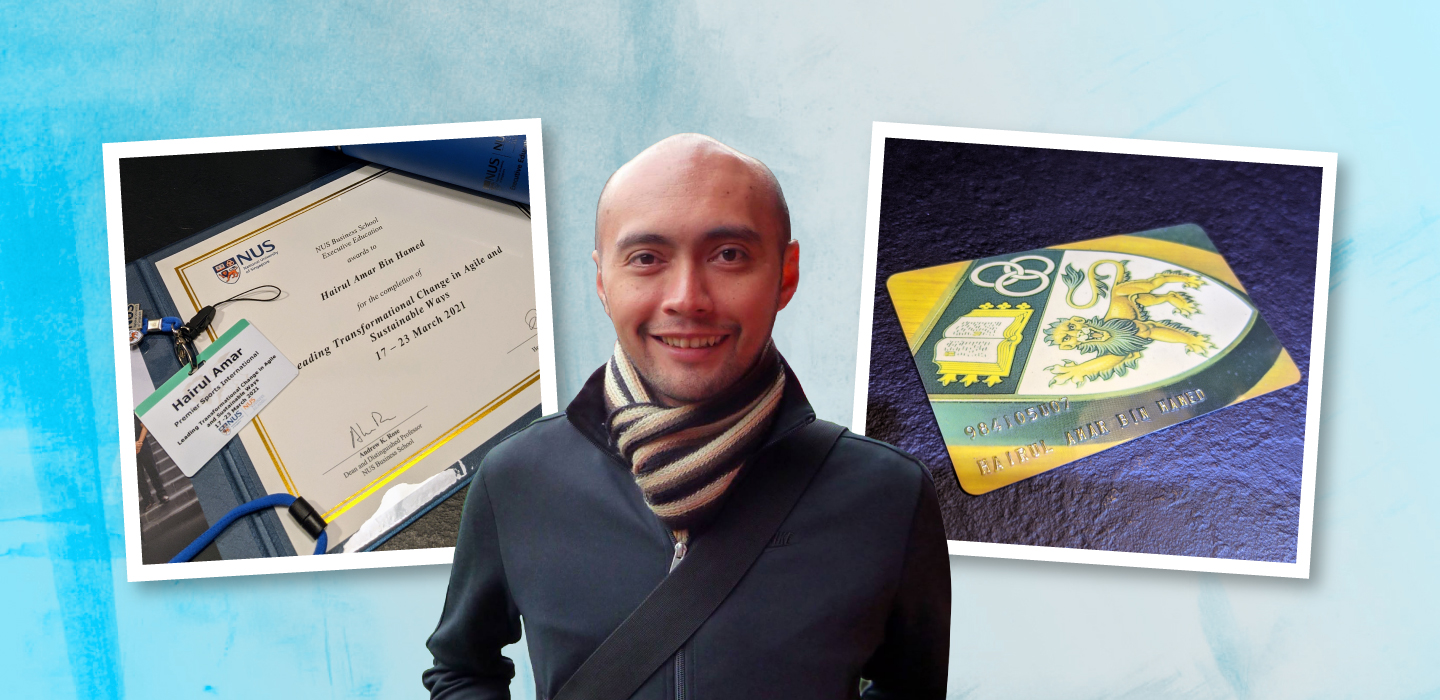Hairul Amar (BBA 2001) is back in school for more learning.
A brand manager at Premier Sports, a Singapore-based distributor specialising in soccer products, including team jerseys and souvenirs, Hairul was on the lookout for ways to enhance his company’s organisational transformation initiative.
He decided to upskill himself at his alma mater, NUS Business School.
“My objective is to equip myself with knowledge on how to guide transformational change within an organisation and to identify tools that aid in the process,” he said.
Premier Sports is looking to adapt to the current pandemic. For instance, the company is looking to pivot into a more service-oriented organisation and increase engagement with consumers through social media and other emerging technologies.
Besides knowledge and skills, Hairul believed that he would gain from exchanging insights and experiences with fellow participants in a classroom.
Positive NUS experience
That was when Hairul decided on the Leading Transformational Change For Agility And Sustainability programme organised by NUS Business School’s Executive Education team.
His choice was influenced by his positive experience at an earlier programme Marketing Strategy in a Digital World. In that programme, Hairul learned to apply critical and analytical thinking towards making sense of the fast-changing landscape within a structured framework. He also reconnected with the course’s programme director, Associate Professor Prem Shamdasani, who taught him during his undergraduate days.
In the new course, Hairul said the instructors made the course relatable by getting the participants to look at transformational change from a personal perspective.
Each participant was encouraged to keep a diary of their daily habits, which involved taking detailed notes of what they ate and drank, how much they slept, and how much they worked out.

Hairul with his Executive Education certificate and student card from his BBA days.
The data was then cross-referenced with how effective each participant felt in class based on their habits. The simple exercise emphasised the necessity for self-care to ensure sustainability in leading transformational change.
Led by programme director Professor David De Cremer, the instructors shared case studies of successful and unsuccessful organisational change to help reinforce the key teaching points.
Ensuring a sustainable change
One of Hairul’s biggest takeaways was the importance of conducting an internal assessment of employees before implementing transformational change. The review would help leaders better understand their teams’ physical, mental and psychological well-being, and where necessary, make the changes to ensure the upcoming change is successful.
“It is important to identify staff who will be key allies in implementing transformational change in the organisation,” said Hairul. Keeping the staff motivated and engaged in the process will go a long way towards ensuring success and sustainability.
Hairul added that leaders often spend time and effort trying to convert staff who have a negative view of change. “In actual fact, these staff will never be fully converted and ultimately undermine the potential long-term success of the strategy,” he said.
Hairul also found it helpful to hear from other participants their experiences in handling change in different verticals. Course mates from a diverse range of industries, from education and healthcare to facilities management, shared how each of their sectors was affected by the pandemic, and how they managed the need for change in a very short period.
After the completion of the programme, Hairul said he can now better guide change in his firm. For instance, he makes sure that all stakeholders are involved in the planning stage of any transformational process, including the frontline staff of the organisation.
“It is very important to get the buy-in from them, as more often than not, they determine the likelihood of success of any change project,” he said.
As the pandemic continues, Hairul believes it is the best time for individuals to learn and improve. The best place to learn how to adapt to disruption is the school, he added.
And given his positive experiences, what would Hairul be keen on learning next at NUS Business School? “Perhaps I would pursue an Executive MBA,” he said.




